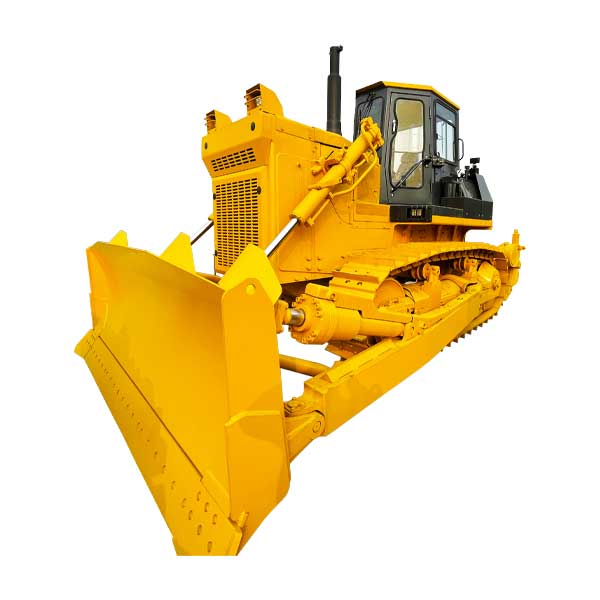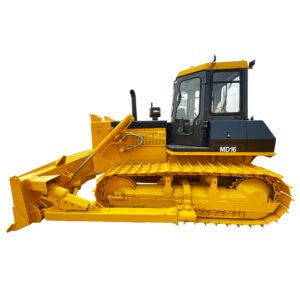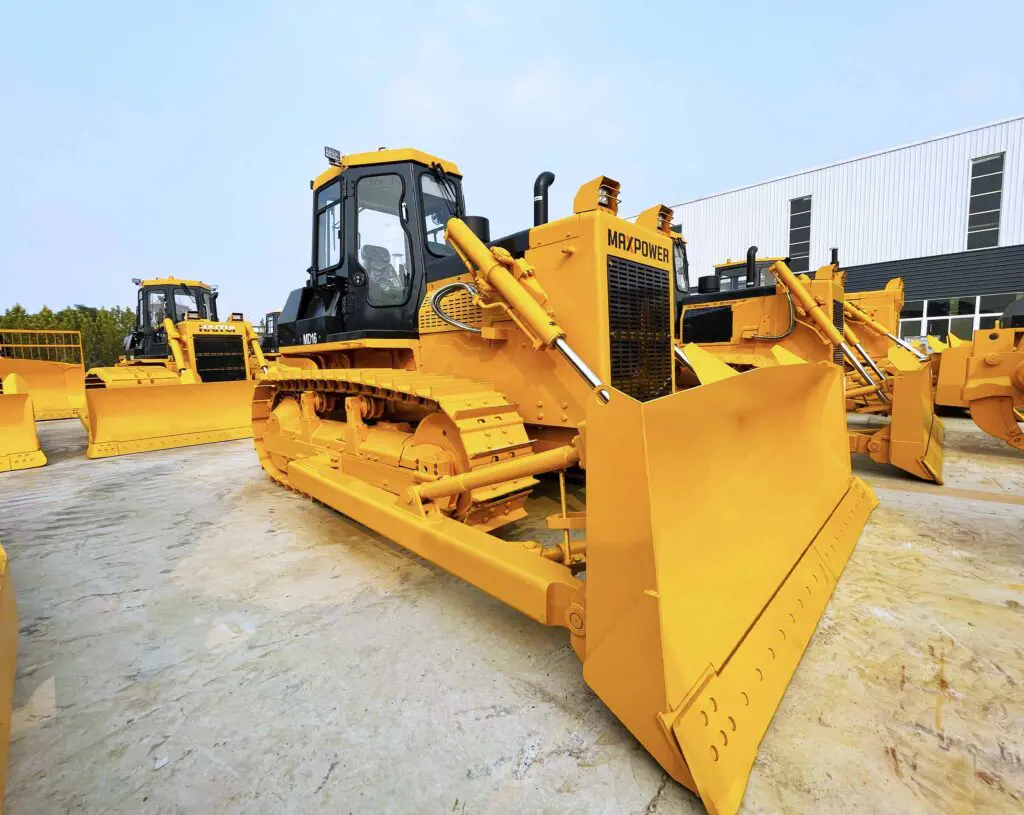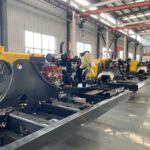Introduction
Dozer equipment refers to heavy machinery specifically designed for earthmoving and construction tasks. These robust machines, commonly known as dozers, feature powerful engines and large blades or buckets attached to the front, allowing them to push, shovel, and move large quantities of soil, debris, or other materials with ease. From clearing land to grading terrain, dozer equipment plays a vital role in various construction projects, offering unmatched efficiency and versatility.
Types of Dozer Equipment

There are several main types of dozer equipment to consider for different construction applications:
- Crawler dozers: Also called track-type tractors, these heavy-duty dozers run on continuous tracks for excellent traction even in muddy or rocky conditions. Crawler dozers are powerful and versatile machines suitable for heavy-duty tasks like large-scale grading, clearing, and demolition work.
- Wheel dozers: As the name suggests, wheel dozers have wheels instead of tracks. They are generally lighter-duty than crawlers and better suited for tasks on prepared surfaces with good compaction and drainage. Common applications include smaller grading projects, landscaping, and surface preparation.
- Multi-terrain loaders (MTLs): A hybrid between a dozer and a loader, MTLs have the pushing power of a dozer with the lifting and carrying capability of a loader. They are highly maneuverable machines well-suited for tasks like site clearing, stockpiling, loading trucks, and general construction site work.
Project Requirements
The next step is to carefully evaluate your specific project requirements to determine which dozer characteristics and capabilities best match your needs. Key factors to consider include:
- Surface conditions: Will the dozer be operating on prepared surfaces, loose soils, mud, rocks, or steep grades? Tracks provide better flotation in soft or uneven ground compared to wheels.
- Project size: How large is the area to be graded/cleared? Crawler dozers can move more material over greater distances than smaller wheel or MTL dozers.
- Terrain: Are there any obstructions like trees or boulders that require maneuverability? MTLs offer superior agility for navigating complex sites.
- Additional tasks: Will the dozer need to load trucks or stockpile materials in addition to pushing? Consider an MTL for multifunctional capabilities.
- Schedule and budget: Rental rates vary significantly by equipment size. Match the dozer to the minimum capacity needed to complete tasks on schedule and on budget.
Dozer Equipment Selection

With an understanding of your project needs and site conditions, you can now begin selecting the appropriate dozer equipment. Table 1 below compares some common dozer models to consider for different applications. Remember that manufacturer specifications may vary by year and configuration. Consulting experienced equipment dealers can also help you evaluate options tailored to your specific project.
Table. Comparison of Common Dozer Models by Application
| Model | Typical Application | Operating Weight | Push Force | Width |
|---|---|---|---|---|
| Crawler Dozer | Large grading and clearing projects | 30,000-50,000 lbs | 60,000-120,000 lbs | 12-20 ft |
| Medium Wheel Dozer | Medium grading projects, landscaping | 15,000-30,000 lbs | 30,000-60,000 lbs | 8-12 ft |
| Compact Wheel Dozer | Small grading, surface preparation | 8,000-15,000 lbs | 15,000-30,000 lbs | 6-8 ft |
| Multi-Terrain Loader | Site clearing, stockpiling, loading | 15,000-30,000 lbs | 30,000-60,000 lbs | 8-12 ft |
Dozer Attachments
For increased versatility, many dozer models can be equipped with different types of attachments. Common examples include:
- Rippers: Penetrating shanks that break up hard surfaces for improved grading of compacted soils.
- Brush cutters: Rotating cutting drums that clear vegetation more efficiently than just pushing.
- Winches: Help extract stuck equipment from muddy or uneven terrain.
- Buckets: Allow dozers to scoop and dump materials like excavators.
Be sure to factor attachment compatibility and any additional costs into your dozer selection process.
Maintenance and Service Needs Finally, consider the maintenance and service needs of the equipment options. Heavier dozers have higher fuel and part costs. Models with tracks also require more frequent undercarriage repair or replacement than wheel models. Choosing a dealer with convenient service locations can minimize downtime. Rental equipment may have higher per-hour costs but transfers maintenance responsibilities to the dealer.
Conclusion
With the variety of dozer equipment available, taking time upfront to understand your project needs and site conditions is key to selecting the right machine. Following the guidelines in this article will help you choose dozers with the optimal specifications, capabilities, and overall fit to efficiently complete your construction tasks on schedule and budget. Do not hesitate to consult experienced dealers and contractors as part of your evaluation and selection process.
FAQs
Q: Our project requires pushing soil up a steep slope. Which dozer type would work best?
A: A tracked crawler dozer would be your best option, as the continuous tracks provide higher ground pressure and flotation for better traction on steep grades compared to wheeled dozers.
Q: We need to clear trees and brush as well as grade the land. Should we consider an attachment or different dozer type?
A: For this application combining tasks, a multi-terrain loader or medium wheel dozer equipped with a brush cutter attachment would be a good choice. The brush cutter helps efficiently remove vegetation, while the dozer body still provides grading capability.
Q: What size dozer do you recommend for a 2-acre site grading project?
A: For a project of that scale, a compact wheel dozer in the 8,000-15,000 lb operating weight class would likely be sufficiently sized. A medium wheel dozer could also work depending on soil conditions and push requirements, but may be more dozer than needed.
Q: Is it better to rent or purchase equipment for our short-term project?
A: For a one-time or short-term project, renting is usually the most cost-effective option as it eliminates the costs of ownership such as purchase price depreciation and ongoing maintenance. Just be sure to factor rental rates into your budget and schedule.







-150x150.webp)
